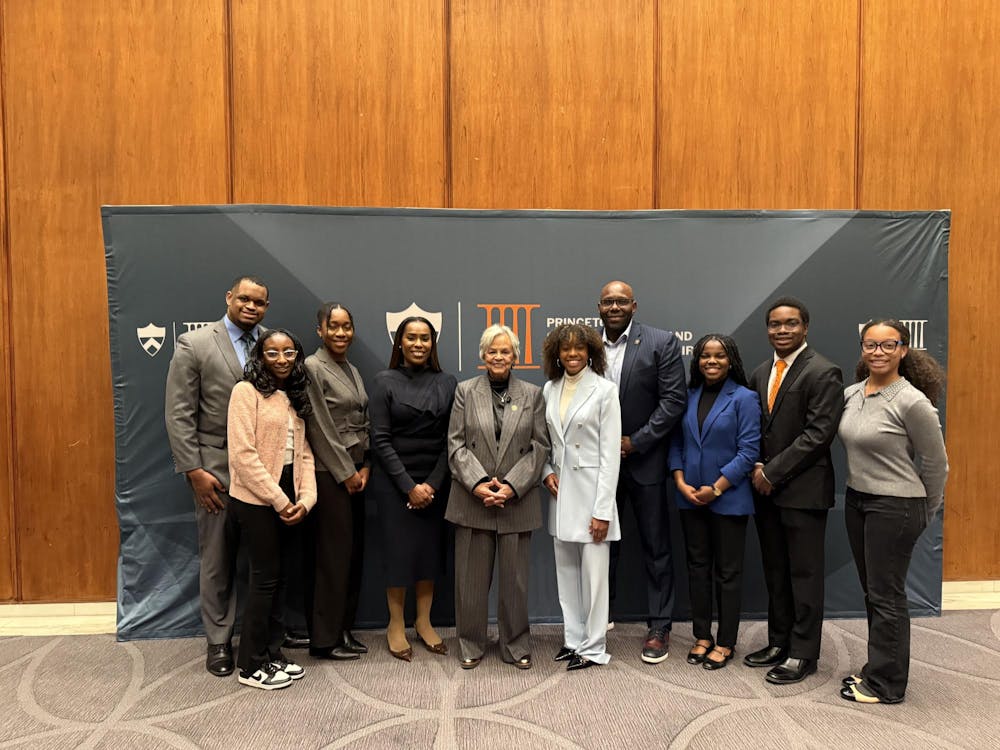Gandhi. Few names in world history evoke such powerful images of integrity, courage, social harmony and - perhaps most of all - hope. Arun Gandhi preaches the same guiding principles as his grandfather, the legendary peacefighter and spiritual leader, Mohandas K. Gandhi, also known as Mahatma Gandhi.
Gandhi delivered a speech last night titled "Terrorism, Nonviolence and Justice" in a packed McCosh 10.
Throughout his address, Gandhi focused on the philosophy of nonviolence that he learned from his grandfather and its applicability in a world where events like Sept. 11 happen. All of Gandhi's insights were supported by anecdotes about his childhood experiences with his renowned ancestor.
In Gandhi's philosophy, nonviolence is not the opposite of violence, he said. "Nonviolence is about building positive relationships with all human beings - relationships that are based on love, compassion, respect, understanding and appreciation."
Gandhi defined terrorism as nothing but violence. According to his views, the basic ingredient of all violence is poverty. For example, he said, the $800 billion the United States spends each year on cosmetics would be enough to give all children a basic education - and the $1 billion a year spent on ice cream would cover the cost of providing clean water to all third world countries.
Gandhi said these inequalities are acts of passive violence that generate divisions of resentment between rich and poor.
"All these things, conscious and unconscious, that we do every day are all contributing to violence," he said.
Gandhi said that in order to eliminate all violence, people have to become more conscious of what they do.

"We may have to give up luxuries so that others can get the essentials that they need," he said. "With that concept in mind we could reduce the level of violence. When we do that, we will not have terrorism that strikes at us."
Gandhi made two predictions about how his grandfather would have reacted to recent events in the United States and in Afghanistan.
"He would have helped us realize that Sept. 11 was not a separate incident - it was a cumulation of several decades of wrong policies and a focus based heavily on our needs with disregard to principles and ethics," he said.
Gandhi also noted that his grandfather would have agreed with the United States about the need to arrest and contain al-Qaida and Osama bin Laden but that he would have been opposed to U.S. military action.

"We should have involved the United Nations," he said. " If that happened, it would be terrorists versus the world. Instead, today, it is Christians versus Islam and that should not have happened."
After leading successful projects for economic and social reform in India, Gandhi came to the United States in 1988 to complete research for a comparative study on racism in America.
In 1991, Gandhi and his wife, Sunanda, founded the M.K. Gandhi Institute for Nonviolence, headquartered at Christian Brothers University in Memphis, Tenn. The institute's mission is to foster an understanding of nonviolence and to put that philosophy to practical use through workshops, lectures and community outreach programs.
The talk was sponsored by the Third World Center, in conjunction with the Wilson School, the Office of the Dean of Undergraduate Students, the Projects Board and the Bobst Center for Peace.







